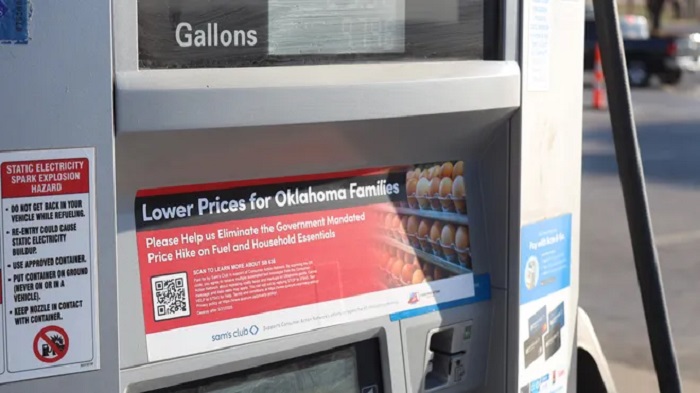Enid, OK – A decades-old law that has added a mandatory 6% markup to essential goods in Oklahoma could soon be a thing of the past. Lawmakers in the House Commerce and Economic Development Oversight Committee are set to hear Senate Bill 638 on Tuesday at 3 p.m., a proposal aimed at repealing the state’s 76-year-old Price Control Act.
Enacted in 1949, the Price Control Act mandates that businesses apply a minimum 6% markup on everyday items including groceries, gasoline, medications, and pet food. Oklahoma remains one of only seven states to still enforce such a rule, and it ranks as the second-highest in markup percentage among those states.
State Senator Julie Daniels, R-Bartlesville, the bill’s author, said the law has outlived its usefulness.
“Most other states have moved away from this mandatory markup,” Daniels said. “I believe it’s time for us to do the same.”
The bill has already cleared the Senate with little opposition and now awaits discussion in the House committee. Representative Steve Bashore, R-Miami, is co-sponsoring the legislation on the House side.
“This doesn’t eliminate the tax, but it gives businesses an option,” Bashore noted. “Businesses can still mark their prices up if they want to, but this repeal would no longer force them to.”
Supporters of the bill argue that eliminating the markup could help lower prices and ease the financial burden on Oklahoma families, particularly those living on fixed incomes.
Jim Randall, chairman of the Oklahoma State Council on Aging, emphasized the potential impact on senior citizens and low-income residents.
“Oklahomans as a whole spend roughly $14,310 annually on groceries,” said Randall. “That is an extra 6% that, instead of being allowed to be in the competitive marketplace, is an imposition.”
Randall said the law disproportionately affects those living paycheck to paycheck, forcing difficult decisions on basic necessities such as prescriptions and healthcare.
“For every bit of extra dollars they have to spend on this, that puts them in a position to where they may have to compromise,” he added. “Whether or not they go pick up a prescription, whether they go to a doctor, or whether they have other services that are necessary and vital to their health.”
Critics of the repeal caution that removing the law could hurt small, independent retailers who may struggle to compete with big box stores and national chains without the mandated markup.
The outcome of Tuesday’s committee hearing will determine whether the bill advances to the House floor for a full vote.

